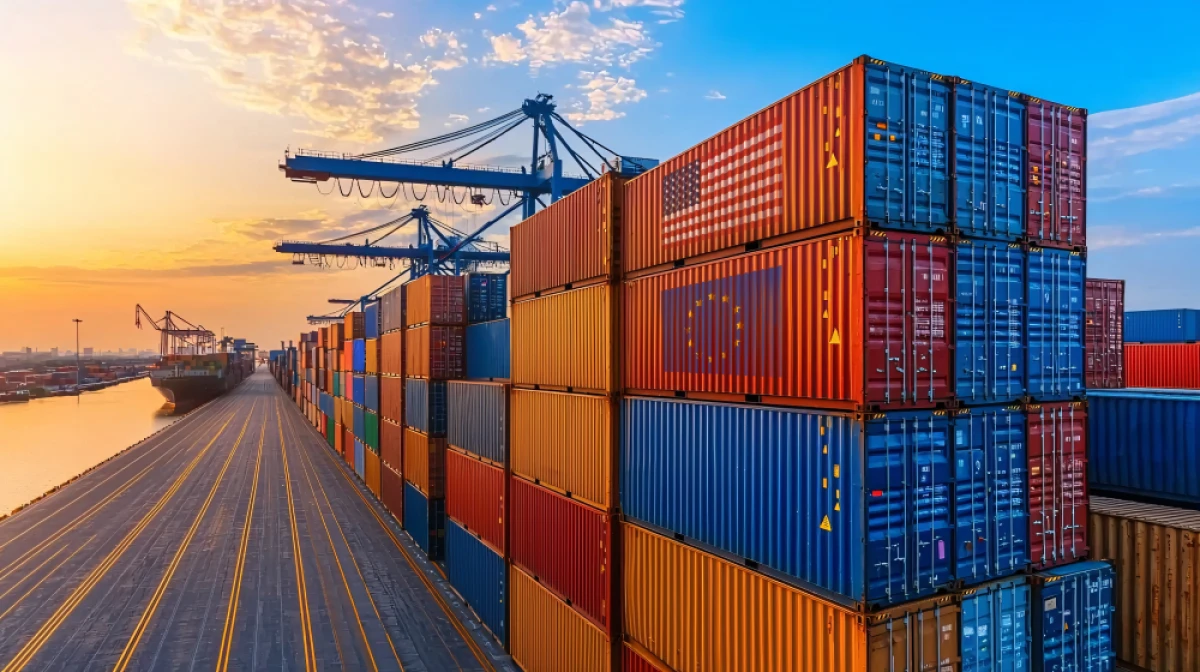Strategic Supplier Engagement: Building Compliance, Transparency & Stronger Supply Chains
By Rupert Hodges | 8 November 2024
minutes to read.

Governments around the world are introducing strict regulations that hold companies accountable for the environmental and human rights impacts of their supply chains. Several key regulations have been introduced that directly impact supplier engagement, and businesses operating need to be aware of these developments.
Supplier engagement is the process of building and maintaining a positive and collaborative relationship with your suppliers throughout the supply chain. It’s more than simply managing contracts or buying goods – it involves regular communication, collaboration, and transparency to make sure suppliers meet your company’s ethical, environmental, and operational standards.
Supplier engagement doesn’t end with cost-effective procurement. It requires businesses to have a long-term view and create partnerships where both the company and its suppliers work together to improve performance, reduce risks, and achieve regulatory compliance.
The benefits of supply chain compliance
Building a robust supply chain compliance framework is about more than just sensible due diligence - it also yields significant competitive advantages.
1. Stronger relationships
Supplier relationship management helps companies ensure they only work with suppliers that adhere to high ethical, environmental, and labor standards. Stronger supplier collaboration develops deeper, more trustworthy relationships. It creates a foundation for joint problem-solving and shared risk management which strengthens the entire supply network.
2. Enhanced innovation
When companies have a clear understanding of their suppliers' operations and a high degree of confidence in their practices, they can more easily explore new technologies, sustainable materials, and process improvements together. This collaborative innovation can lead to the development of unique, market-leading products and services.
3. Greater resilience
By rigorously vetting and monitoring suppliers, businesses can build a more resilient supply chain that is better equipped to withstand disruptions. This proactive engagement in sustainable sourcing not only mitigates reputational and operational risks but also positions the business as a leader in corporate social responsibility.

The consequences of supplier non-compliance
The repercussions of non-compliance can be severe – including hefty fines, civil and/or criminal penalties, and even legal action. For this reason, it's essential for brands to implement steps to improve supply chain compliance.
1. Loss of market access
The US, UK and EU are some of the world’s largest economies and major trading partners for many countries, so non-compliance with regulations could result in losing access to these lucrative markets, which can significantly impact a company’s bottom line.
2. Financial loss
Regulatory bodies impose expensive fines on companies that fail to comply with due diligence requirements and these penalties can significantly impact revenue. For example, under the Corporate Sustainability Reporting Directive, companies are required to disclose comprehensive data across ten topics, and failure to comply can result in financial penalties based on a company’s turnover.
3. Legal consequences
Penalties can include significant fines, which are often calculated based on the value of the goods involved and can escalate with repeated violations. Legal ramifications may also include litigation and potential criminal charges for company officers.
4. Supply chain disruptions
The CBP’s enforcement measures can happen at speed, severely impacting operations, and leading to supply chain disruptions and emergency compliance measures. Furthermore, non-compliant businesses may find themselves subject to increased scrutiny by regulators, leading to more frequent audits and inspections.
5. Reputational damage
Companies found to be in non-compliance with regulations can result in negative media attention and reputational damage, leading to loss of customers, investors, and potential legal consequences. By investing in strategic supplier engagement, brands can significantly improve their chances of avoiding this damage in the first place.
Why traditional traceability falls short
As global supply chains have grown more complex, so too have the challenges associated with managing them. Many companies are far removed from the origin of their raw materials, making it difficult to ensure ethical and sustainable practices are followed throughout the supply chain.
Some of the key challenges faced by today’s businesses include:
1. Lack of visibility beyond tier one suppliers
Many companies only have visibility into their direct or first-tier suppliers and do not have insight into sub-tier practices, leaving them vulnerable to reputational damage if unethical or unsustainable actions occur further down the supply chain.
These indirect suppliers and subcontractors, often located in different countries with inconsistent standards, practices and regulations, can pose significant risks to sustainability and compliance efforts.
2. Unreliable data
Companies rely on self-reported data by suppliers to trace the origin of raw materials, but this will no longer meet the standards demanded by tough new ESG legislation as it is susceptible to inaccuracies and fraud. Without reliable, validated data, brands cannot easily understand how and where their supply chain is failing and its weak links.
In turn, this means they can’t make informed decisions about how to engage with the supplier to remediate the situation, nor can they promote their goods as sustainable or socially responsible.
Forensic proof of compliance provides robust, credible product data that companies can rely on.
3. Fragmented supply chains
With multiple suppliers involved in producing a single product, it can be challenging to track the origin of raw materials and ensure ethical and sustainable practices are followed at every step. When suppliers change or new products are introduced, it becomes even more complicated to manage and monitor the entire supply chain without proper traceability measures in place.
4. Old-school data management
The sheer volume of data generated in supply chains can be overwhelming and relying on outdated paper-based records and spreadsheets to track and document supply chains increases the risk of errors and delays in identifying potential issues. While these methods have been standard for years, they are inadequate in meeting the demands of modern ESG legislation and consumer expectations.

How to build a supplier engagement strategy
Supplier engagement isn’t just about keeping track of what your partners are doing on the ground. It’s about building long-term, collaborative relationships that lead to better outcomes for everyone.
Communication and collaboration
Develop strong relationships with suppliers by maintaining open and consistent communication and understanding their capabilities, challenges and needs. Proactive engagement through meetings, audits, and progress reviews helps both parties stay aligned, making sure that any issues identified are resolved quickly.
Introduce a supplier engagement workflow program which encompasses the entire relationship, from onboarding new suppliers and monitoring performance to collaboration and continuous improvement.
Understand the unique needs and risks of different parts of your supply chain, and tailor supplier engagement approach accordingly.
Traceability and transparency
Implement traceability and verification systems to ensure transparency and compliance throughout the supply chain and build trust and accountability. Product and material traceability assure companies of the authenticity of their products and integrity of their supplier networks.
Training and support
Provide training and support to suppliers to help them meet company requirements and standards, this can improve their capabilities and your partnership.
Rather than demanding compliance, companies must invest in helping their suppliers grow and improve. When suppliers feel supported, they are more likely to prioritize sustainability, leading to better outcomes across the supply chain.
Sustainable sourcing initiatives
Collaborate with suppliers on sustainability initiatives and share best practices.
Engage suppliers in the product development process to leverage their expertise and foster a sense of shared ownership and commitment.
(Image credit: Vecteezy)
For an in-depth examination of the impact of EU regulations on supplier engagement – and how brands and retailers can mitigate risks – download our whitepaper.
Disclaimer: The information provided in this document does not and is not intended to constitute legal advice. Instead, all information presented here is for general informational purposes only. Counsel should be consulted with respect to any particular legal situation.





